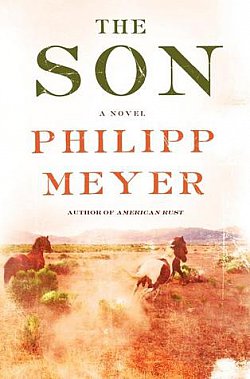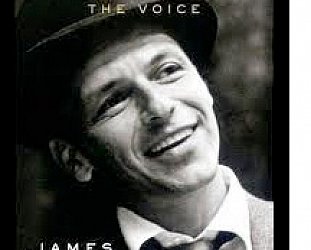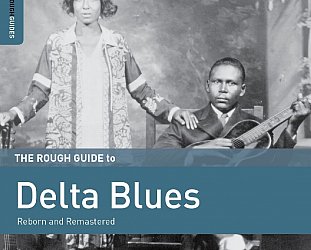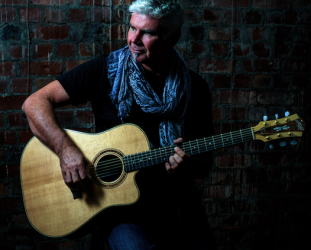Graham Reid | | 2 min read

When the Comanche raiding party came to their Texas homestead, they stole the horses, raped and killed his mother and younger sister before his eyes, then dragged the young Eli and his older brother Martin away as slaves.
Over the following days the boys were beaten, starved and beaten again on a forced march back the warriors' lands, but after days of abuse Martin, poetic and philosophical, decided he could take it no more and so defied the band and was killed where he stood.
And that is how eight year old Eli – later The Colonel – came to grow up with the Comanche, learn their ways and become one of them, although always be a man apart.
Many decades later killings were still happening. This time – on the flimsiest pretext and against the backdrop of the Mexican Revolution across the border – the Texans massacred their longstanding Mexican neighbours, cutting down men, women and children indiscriminately, driven by a mob mentality and blood lust.
That Peter – the grandson of Eli, who records all this in his diaries – offered protection for some of them only places him in danger too. Another man apart.
The Texas in the pages in this multi-generational and often terrifyingly realist novel is steeped in blood up to its nostrils, and the stink of warriors, horses, gun-smoke and cattle is almost palpable in Meyer's gripping prose.
But then, in 2012 -- as the author shuffles the deck of time and place – we also meet the fifth richest woman in the state. She is 86-year old Jeanne Anne, great-granddaughter of the Colonel, who is turning over the pages of her life as she fades from this one, hearing the voices, reliving her part in this swirling epic of family, blood, oil and retribution.
A pragmatist, she stopped going to church after her father died (“if prayer could not even keep your family alive she did not see what good it was”) but even in her haze can call down the plain truth, even if no one is listening anymore.
“The industrialists built the country, the oilmen made it run. Now it was just the oilmen. The industrialists, or whatever they called themselves these days, led lives based on destruction, closing down factories and moving them abroad. She did not expect to be loved but there were bastards and there were bastards: those men had taken apart the country brick by brick and if there was anything she hated more than unions, it was people out of work”.
Such plain speaking punctuates these visceral pages.
Toshaway of the Comanche tells the young Eli: “Of course we are not stupid, the land did not always belong to the Comanche, many years ago it was Tonkawa land, but we liked it so we killed the Tonkawa and took it from them . . . and now they are tawohho and try to kill us whenever they see us.
“But the whites do not think this way – they prefer to forget that everything they want already belongs to someone else. They think, 'Oh, I am white, this must be mine' and they really believe it. I have never seen a white person who did not look surprised when you killed them.”
Such is life and death in these dramatic, thought-provoking pages where Peter endures World War I and living the shadow of the towering figure of the bombastic and often brutally dismissive Colonel, where Jeanne Anne – a woman apart – builds an empire on oil and now wonders if, having spoiled and ruined her children, leaving them wealth is to be her penance.
In a 570 page novel thick with questions about morality and mortality, it is the flawed humanity which comes through in the author's assured hands. These characters – Eli born the same day as Texas becomes a state – are real because of their emotional fractures, and their character faults are the inevitable consequence of decisions made and circumstances beyond their control.
The Son is a masterpiece of narrative, character, history and sometimes rather obvious research. You may never need to know it, but Meyer describes how `buffalo could be killed, butchered and a use found by the Comanche for every part of the animal.
The point perhaps that within a few decades the buffalo were all but gone, the land they roamed was spotted with oil wells and the children of Jeanne Anne were being flown home from school on private planes for weekends.
This novel is the remarkable and readable story of how all that, and much more, happened.





Chris - Jan 7, 2014
I had been waiting for this one for a while after reading his first novel, American Rust, and agree that it is very good (as is American Rust).
Savepost a comment